Why study this course with LJMU?
- The School of Sport and Exercise Sciences is ranked first in the North West and top 20 in the world for Sports Science (QS World University Rankings 2025)
- Developed by expert academics with an international reputation for the delivery of physical education
- Combines practical and theoretical aspects of physical education
- Gain real-world experience and skills within the local community through work placements and an optional sandwich year. LJMU offers strong partnerships with both primary and secondary schools for placement opportunities
- Offers excellent career opportunities in a variety of areas, such as teaching (upon completion of an Initial Teacher Training programme), sport coaching, sport development or youth and community work
- Endorsed by the Chartered Institute for the Management of Sport and Physical Activity (CIMSPA)
- 97% of students surveyed said the teaching staff on this course were good at explaining things (NSS 2024)
About your course
On our PE degree, you'll learn about a wide range of topics, including teaching methods, physical training concepts, psychological theories related to sport and exercise, social issues in physical education such as gender, race and media, and historical and philosophical aspects related to PE.
This engaging and challenging BSc (Hons) Physical Education course integrates the theoretical and practical aspects of physical education into one exciting degree programme. There continues to be a high demand for graduates with the skills, knowledge and confidence to promote health and fitness, competitive sport and engagement with physical activity in a range of educational, community and other settings. This degree offers you the chance to specialise in physical education, exploring both the theory and practical aspects of the subject.
Students on the course apply their learning in practical physical education sessions, through assignments such as research projects, and work placements in industry. This combination of up-to-date theory and practical application serves our students well as they develop their careers through teacher training programmes, post-graduate study (Master's degrees and PhDs), in education (primary and secondary schools, further education), and at a host of non-teaching areas (businesses, community groups such as charities, and the uniformed services).
During your studies, you will develop your own philosophies and interests while being introduced to innovative concepts of physical education. You will gain a wide variety of essential professional skills and qualities that can form the foundation for a successful career teaching physical education in primary, secondary or further education, though teaching is not the only career pathway available.
The programme synthesises the practical and theoretical aspects of physical education through an extensive range of activities and contexts. You will have the opportunity to take part in innovative entrepreneurial projects by working within sport and physical education in different educational establishments and sporting ventures. This includes excellent work-related learning and placement opportunities with organisations such as LJMU's in-house Sport Start scheme.
You will be assigned a student peer mentor, and this support will be available before you arrive at LJMU and for the duration of your academic studies.
Course modules
What you will study on this degree
Further guidance on modules
Modules are designated core or optional in accordance with professional body requirements, as applicable, and LJMU’s Academic Framework Regulations. Whilst you are required to study core modules, optional modules provide you with an element of choice. Their availability may vary and will be subject to meeting minimum student numbers.
Where changes to modules are necessary these will be communicated as appropriate.
Core modules
Research Methods 1
20 credits
20 credits
This module will introduce you to the fundamental concepts of research methods, along with covering the basic application and interpretation of various data analysis techniques.
Exercise Physiology 1
20 credits
20 credits
This module will develop your knowledge and understanding of the basic structure and function of key physiological systems, metabolic processes and discuss how these systems and processes respond to feeding and acute exercise.
Psychosocial Principles of Sport and Exercise
20 credits
20 credits
This module will develop your knowledge and understanding of the psychosocial concepts that underpin the sport and exercise environment.
Human Movement
20 credits
20 credits
This module will introduce you to the basic principles of human anatomy, functional movement, biomechanics, and motor skill acquisition, and to illustrate applications of these principles in sport, exercise, and health. The module also aims to introduce you to experimental methods in biomechanics and to develop skills in data handling.
Professional Practice in Physical Education 1
20 credits
20 credits
This module aims to provide an understanding of the contextual learning experiences that enhance professional development within PE. You will be introduced to the value of occupational socialisation (acculturation phase) from within the PE teacher socialisation framework. Through a combination of theoretical and practical learning environments, you will be able to identify personal and professional areas for development. Work related learning tasks and opportunities, with primary school aged children, will support your ability to plan, deliver and evaluate a range of high-quality practical sessions. You will have the opportunity to share, reflect and discuss learning experiences through peer learning groups and through the development of the primary school community and network.
Learning in PE & Sport Contexts
20 credits
20 credits
This module will enable you to appreciate positive learning environments in sport, PE, and physical activity settings. You will consider theoretical conceptions of learning and consider how these theories can inform your pedagogical practices.
Core modules
Research Methods 2
20 credits
20 credits
This module will enhance your understanding of the research process and related methodological approaches, whilst also developing your knowledge, skills and to complete investigations involving data collection, analysis and interpretation.
Professional Practice in Physical Education 2
20 credits
20 credits
This module aims to develop an understanding of the personal and professional skills and attributes required for teaching and learning within PE. It is a continuation of the development of subject knowledge and understanding surrounding occupational socialisation covered in level 4. Using theoretical underpinning, you will be introduced to the importance of the professionalisation phase of occupational socialisation. You will experience both theoretical and practical learning environments to consider personal and professional progress to date. Through work-based learning and module experiences, you will have the opportunity to further develop your PE teaching efficacy.
Learning in PE & Sport Contexts 2
20 credits
20 credits
This module will provide you with a critical appreciation of pedagogical models (games-based approaches, Rosenshein’s principle, non-linear pedagogies) and theoretical perspectives on learning (critical, ecological and relational), and their application to further develop your pedagogical practice.
Introduction to PE Teacher Education
20 credits
20 credits
This module aims to provide you with the knowledge and understanding of the National Curriculum for PE (NCPE) and the strategies and skills required to plan and deliver inclusive PE within a primary setting, therefore providing an opportunity to create, develop and apply your personal teacher identity.
Physical Education in Action 1
20 credits
20 credits
This module aims to develop an understanding of the historical and socio-political and influences on the development of physical education by considering how changes in society, politics and philosophy have impacted on PE curriculum, pedagogy and practice.
Optional Modules
Study Year Abroad - Physical Education
120 credits
120 credits
The module offers you the chance to spend an additional year of study at an approved overseas partner that will complement your programme at LJMU.
Study Semester Abroad - Physical Education
60 credits
60 credits
Within this module, you have the opportunity to spend a semester of study at an approved overseas partner that will replace one semester of your LJMU programme at level 5.
Exercise Physiology 2
20 credits
20 credits
This module will develop your knowledge and understanding of the cardiovascular and metabolic responses of acute and chronic exercise. This will enable you to discuss these in relation to human health and performance.
Sport and Performance Psychology
20 credits
20 credits
This module will develop your ability to evaluate psychological principles associated with sport performance, motor control and learning, considering individual (e.g., personality) and environmental (e.g., culture) factors.
Sport, Physical Education and Society
20 credits
20 credits
This module will help you to develop your understanding of the relationship between Sport, PE and society, both theoretically and practically. Additionally, it aims to develop your knowledge and understanding of issues pertaining to equity, diversity and inclusion, particularly in relation to marginalised groups/inactive people in Sport and PE.
Sandwich Year - Physical Education
120 credits
120 credits
This module will provide you with a chance to acquire an extended period of work experience at an approved partner that will complement your programme of study at LJMU. This will give you the opportunity to develop professional skills relevant to your programme of study as well as the attitude and behaviours necessary for employment in a diverse and changing environment.
Core modules
Major Project
40 credits
40 credits
This module will critically extend your understanding and deployment of research processes through the planning, production, analyses and report of a piece of independent research conducted in a responsible, safe and ethical manner.
Physical Education in Action 2
20 credits
20 credits
This module aims to develop a deeper understanding of the role physical education plays in the promotion of lifelong physical activity, health and wellbeing of young people. You will also critically reflect on the challenges, choices and constraints that young people experience within the complexity of the primary and secondary educational environment and wider society using a range of contextual, theoretical and philosophical perspectives.
Learning in PE and Sport Contexts 3
20 credits
20 credits
The aim of this module is to enable you to appreciate positive learning environments for marginalised groups in PE and physical activity settings. You will consider critical theory, in addition to theoretical conceptions of model-based practice, and critically analyse how these can impact and/or work best for marginalised groups. You will be required to draw upon physical literacy research to underpin and contextualise your considerations. The module seeks to allow opportunities for you to reflect on how you can develop your own pedagogical teaching practice. To further support this, you will utilise research skills and self-reflection via a reflective tool to draw your own conclusions.
Applied Placement in Physical Education
20 credits
20 credits
You will experience the opportunity to plan and deliver a school or community-based project in a school or community setting. In preparation for the project, you will critically review the leadership, management and enterprise skills required for successful delivery. On completion of the project delivery, you will critically review your personal and professional development and evaluate how this has developed your professional identity.
Optional Modules
Behaviour change
20 credits
20 credits
This module will engage you in current behaviour change theories, concepts and applied examples across the physical activity, nutrition, sport performance and health disciplines. In doing so, you will gain a theoretical underpinning in behaviour change and insight into how to change behaviours across a range of settings/populations/disciplines.
Performance Analysis in Sport
20 credits
20 credits
This module will develop your theoretical knowledge, applied understanding and skills in performance analysis of sport. In doing so, you will improve your ability to review and critique performance analysis application across sports.
This module provides an opportunity to develop your theoretical knowledge and applied skills of assessment and analysis of sport performance domains. You will develop the critical thinking skills required for performance analysis and translation of performance analysis information to the daily sport practice.
PE Teacher Education
20 credits
20 credits
This module will provide you with the knowledge and understanding of the current practices of Physical Education and school sport within the 14-19 National Curriculum. During the course you will also develop a critical understanding of examinations and awards within Physical Education for 14–19-year-olds. The module will enable you to plan and deliver within a 14-19 years setting thereby providing a contextual opportunity to develop personal teaching, learning and assessment approaches in Physical Education.
Interdisciplinary Coaching Science
20 credits
20 credits
This module integrates a sport science and coaching interdisciplinary outlook to creating an evidence-based approach of an athletes annual training plan encompassing critical thinking around potential performance problems and solutions. This module will require you to demonstrate an ability to critically evaluate the key concepts and challenges of programme design and delivery through problem-based learning. This will provide you with the knowledge to discuss how an interdisciplinary team can work together to provide bespoke performance solutions.
Strength and Conditioning
20 credits
20 credits
Within this module you will learn how to implement strength and conditioning concepts and principles in the applied sporting environment. Specifically, you will develop the knowledge and skills needed to perform a needs analysis of an athlete, analyse data against theoretical norms and programme design. Alongside this, you will gain the opportunity to practise and explore the correct ways to administer safe and effective training-interventions.
Professional accreditation/links
Endorsed by the Chartered Institute for the Management of Sport and Physical Activity (CIMSPA).
LJMU is a member of ASET, the UK’s leading authority on work-based and placement learning (WBPL). This membership reflects our commitment to providing students with high-quality WBPL experiences that are well-supported and aligned with best practice guidelines.

Your Learning Experience
Excellent facilities and learning resources
We adopt an active blended learning approach, meaning you will experience a combination of face-to-face and online learning during your time at LJMU. This enables you to experience a rich and diverse learning experience and engage fully with your studies. Our approach ensures that you can easily access support from your personal tutor, either by meeting them on-campus or via a video call to suit your needs.
Teaching encompasses a range of practicals, lectures, seminars, online activities, tutorials, workshops, work-based learning and independent learning.
Peer Learning Groups (PLG) will enable you to discuss and develop course material in a more informal setting plus key personal and professional skills. You will be encouraged to engage in volunteering activities in the local community and gain additional qualifications that will enhance your future employability.
Work-related learning
The degree has a strong element of work-related learning and there will be extensive opportunities to work with young people in a variety of settings (e.g. schools, clubs, leisure centres). Voluntary work experience forms a vital element of the programme and you will be encouraged to apply theoretical concepts in practice. You will also be able to participate in our in-house Sport Start scheme, which brings 12,000 children to the campus for sport and physical activity lessons every year. Students also have an opportunity to study abroad for a year between Level 5 & 6.
Dedicated personal tutor, plus study skills support
You will be assigned a Personal Tutor who will be responsible for supporting your academic and personal progress throughout the course. This one-to-one support is particularly useful for discussing course-related issues or any other concerns that you may have during your studies. Weekly contact with your tutor in a Peer Learning Group will be scheduled as part of your weekly timetable. Other student support services and facilities include: Student Support and IT Zones and a dedicated Library, open in the evenings and at weekends during semesters.
The school is fully committed to promoting a learning environment that supports a culture of equality, diversity and inclusivity (EDI) and has a Disability Support Coordinator, an EDI Coordinator and a School EDI Working Group. Personal Tutors also play a vital role in promoting awareness of support services for students.
Assessment varies depending on the modules you choose, but will usually include a combination of exams and coursework.
LJMU recognises that students perform differently depending on how they are assessed. That's why we use a combination of assessment methods, including written assignments, exams, practical work, individual and group presentations, portfolios, reflective logs and a dissertation.
Assessments are planned across the programme so that you can manage your workload, and use feedback to develop learning for future assignments. Constructive feedback will help you identify strengths and areas for development and is provided regularly throughout the programme.
Where you will study
You will study in Liverpool city centre at our City Campus. Our sport and exercise sciences facilities are world-leading and feature state-of-the-art laboratory facilities for our current and future sport scientists. The Avril Robarts library is within easy walking distance and here you'll find all the information you need to support your studies.


I came to the open day and got to meet one of the lecturers that I have now. It was a really helpful day and helped me make my decision to apply to LJMU.
Career paths
Thanks to our links with over 450 different employers in the North West alone and our strong partnerships with both primary and secondary schools, students enjoy superb work placement opportunities at all levels of their degree studies.
You will also have the opportunity to work with a range of practitioners in a variety of settings. Such experience enables you to put theory into practice and adds real value to your CV so impressing future employers.
Graduates from this programme will be able to pursue careers in teaching (following the completion of relevant Initial Teacher Training programmes, such as PGDE or School Direct primary and secondary courses). Alternative career routes for graduates include coaching, sport development or youth and community work. Public service occupations (including police, education and childrens services), business sector graduate training schemes and educational management are also popular careers amongst graduates.
Student Futures - Careers, Employability and Enterprise Service
A wide range of opportunities and support is available to you, within and beyond your course, to ensure our students experience a transformation in their career trajectory. Every undergraduate curriculum includes Future Focus during Level 4, an e-learning resource and workshop designed to help you to develop your talents, passion and purpose.
Every student has access to Careers Zone 24/7, LJMU's suite of online Apps, resources and jobs board via the LJMU Student Futures website.
Tuition fees and funding
- Full-time per year:
- £9,535
- Placement year:
- £1,905
The University reserves the right to increase tuition fees in accordance with any changes to the maximum allowable fees set by the UK Parliament. In the event of such a change, any fee increase will be subject to a maximum cap of 10% of the total course cost as originally stated at the time of your offer.
The fees quoted above cover registration, tuition, supervision, assessment and examinations as well as:
- library membership with access to printed, multimedia and digital resources
- access to programme-appropriate software
- library and student IT support
- free on-campus wifi via eduroam
Additional costs
Although not all of the following are compulsory/relevant, you should keep in mind the costs of:
- accommodation and living expenditure
- books (should you wish to have your own copies)
- printing, photocopying and stationery
- PC/laptop (should you prefer to purchase your own for independent study and online learning activities)
- mobile phone/tablet (to access online services)
- field trips (travel and activity costs)
- placements (travel expenses and living costs)
- student visas (international students only)
- study abroad opportunities (travel costs, accommodation, visas and immunisations)
- academic conferences (travel costs)
- professional-body membership
- graduation (gown hire etc)
Funding
There are many ways to fund study for home and international students. From loans to International Scholarships and subject-specific funding, you'll find all of the information you need on our specialist funding pages.
- Full-time per year:
- £18,250
- Placement year:
- £3,830
International Scholarships and payment plans
Liverpool John Moores University is committed to supporting international students by providing a range of scholarships and flexible payment plans to help students manage their tuition fees.
Scholarships
LJMU provides a variety of scholarships to support international students. Scholarships are available to self-funded students who have accepted their offer and met all the conditions outlined in their offer letter. Students must also demonstrate that they can cover living costs, travel, and other expenses associated to studying at the university. Postgraduate scholarships include tuition fee reductions and are often offered in partnership with external funding organisations.
All self-funded international students are eligible for an automatic scholarship worth up to £4,000. For more details and to view our full list of scholarships, visit the international scholarship webpages.
Deposit
All students must pay a £5,000 deposit before they can receive their CAS letter.
For more information view our deposit page.
Tuition Fee Payment Plan
After paying their £5,000 deposit, students have the option to pay their fees in full or in three equal instalments minus any internal scholarships and discounts. There are two payment options available for international students. You can either pay your tuition fees in full before enrolment or opt for a payment plan. With the payment plan, you can pay your fees in three instalments after making your £5,000 deposit. The first instalment is due before enrolment.
All payments should be made through Flywire. Full details can be found in the How to Pay Guide.
Early Bird Tuition Fee discount
We are excited to introduce a £500 Early Payment Discount to all self-funded international students. Eligible self-funded students who pay their fees by the required deadlines will get a discount which will be automatically deducted from the 1st year of tuition fees.
To see the required deadlines please visit the webpage
A DBS check is not required for your application, however a DBS may be required for modules where there is a work based learning placement option. Work based learning placements that do not require a DBS check are available.
Entry requirements
Please choose your qualifications below to view requirements
Grades/points required from qualifications: BBC-ABB (112-128)
Work out how many UCAS points your qualifications are worth by visiting the UCAS Tariff Calculator.
Qualification requirements
GCSEs and equivalents
Grade 4 or grade C or above in English Language and Mathematics/ Numeracy.
GCSE Equivalences accepted:
• Key Skills Level 2 in English/Maths
• NVQ Level 2 Functional skills in Maths and English Writing and or Reading
• Skills for Life Level 2 in Numeracy/English
• Higher Diploma in Maths/English
• Northern Ireland Essential Skills Level 2 in Communication or Application of Number
• Wales Essential Skills Level 2 in Communication or Application of Number
A levels
BBC-ABB Minimum Number of A Levels: 2
Maximum AS UCAS Points: 20
At least one Science related subject is required
BTECs
Extended Diploma: DMM-DDM
Access awards
Acceptable on its own and combined with other qualifications.
International Baccalaureate
Acceptable on its own and combined with other qualifications.
OCR Cambridge Technical
Extended Diploma: DMM-DDM
Irish awards
Acceptable on its own and combined with other qualifications.
T levels
Acceptable on its own and combined with other qualifications.
You need to obtain the required UCAS points from a related subject area.
International requirements
IELTS
6.0 overall with no component below 5.5, taken within two years of the course start date.
https://www.ljmu.ac.uk/study/courses/international-entry-requirements
Please Note: All international qualifications are subject to a qualification equivalency check.
How to apply
Securing your place at LJMU
UCAS is the official application route for our full-time undergraduate courses. Further information on the UCAS application process can be found here https://www.ljmu.ac.uk/study/undergraduate-students/how-to-apply.
Students who are passionate, enthusiastic, and innovative and enjoy working with young people in a variety of Physical Education settings are encouraged to be part of this cutting edge programme.
It is highly desirable that prospective students have the ability to reflect on their personal experiences to support their continuing professional development.
Good interpersonal skills, a sustained commitment to personal improvement and an understanding of others' needs are essential attributes that should be demonstrated in the application form.
Your university life
From accommodation and academic support to clubs and societies. Find out what LJMU has to offer.
Related Links
Talk to our students
Connect with a current LJMU student for advice and guidance on university life, courses and more.
See what our students are saying
At LJMU we want you to know you're making the right choice by studying with us. You can see what our students are saying about their experience with us through their reviews on the following websites:
Related Links
News and views
Browse through the latest news and stories from the university
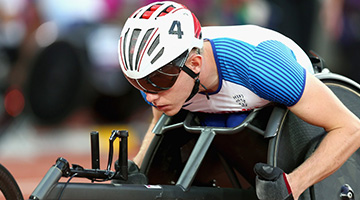
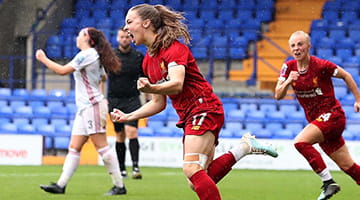
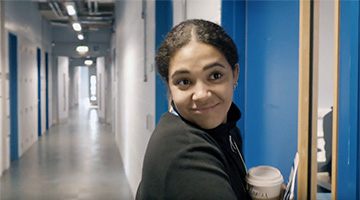
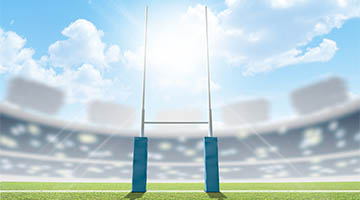
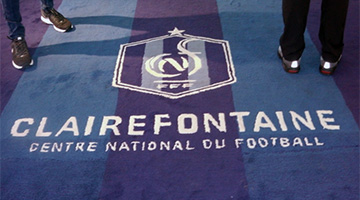
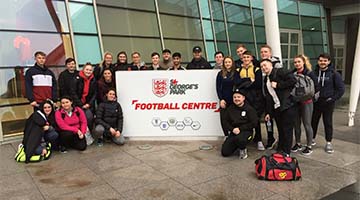
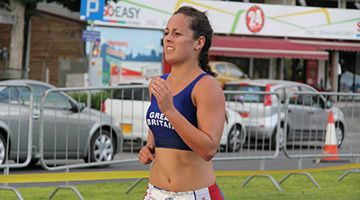
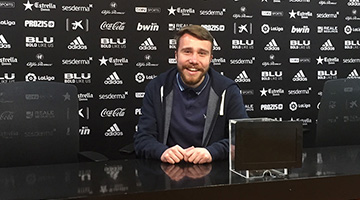
The university reserves the right to withdraw or make alterations to a course and facilities if necessary; this may be because such changes are deemed to be beneficial to students, are minor in nature and unlikely to impact negatively upon students or become necessary due to circumstances beyond the control of the university. Where this does happen, the university operates a policy of consultation, advice and support to all enrolled students affected by the proposed change to their course or module.
Further information on the terms and conditions of any offer made, our admissions policy and the complaints and appeals process.


















